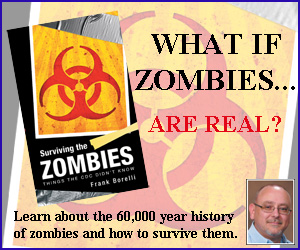Just recently I read an article reporting on a medical study that involved what age a person’s brain fully developed. Apparently, it used to be believed that the average human brain reached full growth at about the age of 12. However, while that is the reported age a brain reaches full size it continues to develop new tissue and operational synapsis much longer. Some believed that “full development” finished between 18 and 21 but this most recent study shows full brain development isn’t usually completed until the age of 25. Now, let’s consider how “full brain development” age might impact decision making, judgment, skill development, etc. and how such things should impact the age at which we are considered “adult”.
 For the sake of this part of this article I’m going to need to define these:
For the sake of this part of this article I’m going to need to define these:
Child: a person between birth and full growth
Adult: having attained full size and strength; grown up; mature.
As that definition of “child” really doesn’t set a date or time frame on when childhood stops, and that definition of “adult” shows that people of any age can still not be adult, I felt more definition might be needed. So I tried “minor” and found what I was looking for.
Minor: under the legal age of full responsibility.
The challenge we face in our country is that the “age of full responsibility” varies from state to state and by topic. For example, the age of full responsibility where military service is concerned is 18. At 18 years of age, and with the required high school diploma or GED equivalent, any able-bodied citizen of either gender in our country can enlist in military service. After basic training and the appropriate skill training for the job they do in the military they can then go fight and die for our country. As members of the military, they are bound by the Universal Code of Military Justice (UCMJ) and are expected to know the difference between lawful and unlawful orders and are held responsible for refusing to obey the unlawful ones. That’s a lot of responsibility and pressure for an 18-year-old.
 At 18 years of age, they can also vote for our elected representatives, indirectly thereby affecting the direction our country grows in. Now, I know some 18-year-olds who couldn’t tell you what position Bernanke holds in our government, or how many people would have to die for Nancy Pelosi to be President, but those same 18-year-olds have an equal say in how our government is run.
At 18 years of age, they can also vote for our elected representatives, indirectly thereby affecting the direction our country grows in. Now, I know some 18-year-olds who couldn’t tell you what position Bernanke holds in our government, or how many people would have to die for Nancy Pelosi to be President, but those same 18-year-olds have an equal say in how our government is run.
Those same 18-year-olds can buy and smoke tobacco products as well as purchasing rifles and/or shotguns. There are a few things they can’t do though. They can’t buy a handgun. They can’t buy an alcoholic beverage (even if they’re in the military). Drinking alcohol or buying a handgun (and applying for the permit to carry same) are denied them until they are 21. Why? The argument I most often hear is that these “children” (even though they are of legal adult age) haven’t developed the appropriate level of good judgment to be trusted with such things as handguns and alcohol.
I take issue with this argument on several levels. First, where handguns are concerned, it makes no sense. Rifles and shotguns, if used to do violence to other people, are far more deadly than handguns. The only “benefit” to handguns if violence is intended is portability and concealability. As a retired police officer I’ve seen and been taught about people who were shot repeatedly (one guy was shot 33 times with a 9mm) and didn’t die. How many people get shot with a shotgun or rifle and don’t die? Somehow, we don’t read about such statistics because long guns aren’t such a hot political topic. But I digress.
 Why can an American citizen who is old enough to serve our country and vote on who manages it not go into a liquor store and buy a beer? Or venture into a bar and have a mixed drink? Or order a glass of wine with their dinner in a restaurant? Even worse, how come those who are enlisted in our military services can’t walk into the NCO club on their military base in the United States and order a drink? Most military installations abide by the laws of the state they are in – so our “underage” military service men and women can’t even have a beer ON that military installation.
Why can an American citizen who is old enough to serve our country and vote on who manages it not go into a liquor store and buy a beer? Or venture into a bar and have a mixed drink? Or order a glass of wine with their dinner in a restaurant? Even worse, how come those who are enlisted in our military services can’t walk into the NCO club on their military base in the United States and order a drink? Most military installations abide by the laws of the state they are in – so our “underage” military service men and women can’t even have a beer ON that military installation.
If lack of development of good judgment is why we make these CITIZENS wait to drink alcohol or possess handguns, then why do we allow them a driver’s license at 16? Or in some states, as young as 14?
If these “children” don’t have good enough judgment to drink or carry handguns until they are 21, then why do we trust them to have good judgment about whether they should enlist in our armed services at 18? In the Marine Corps today you can’t be a Military Police officer unless you are 19. Why? Because maturity and judgment are necessary and the Marine Corps doesn’t seem to feel that, at 18, the average recruit has enough of it. Then why do we even let these people enlist?
Oh, yeah. Because if we made the age of enlist 21 then there would be a lot less people enlisting. Fresh out of high school with no fixed plans, many people enlist to fill their lives for a few years while they “figure things out.” By 21 many of them have figured it out. They have their adult lives underway. They have a lot more to lose and/or give up if they enlist. If the military branches want to maintain strength, they HAVE to allow 18-year-olds to enlist. In fact, if you’re 17 and finished your junior year of high school you can enlist – if your parents will sign the paperwork for you. Just hope that nothing happens in your senior year to change your mind – because you’re stuck.
 What are we, as the collective American society, thinking? 16 is old enough to drive, but not to vote. 18 is old enough to vote, smoke, own a rifle and enlist, but not old enough to drink or own a handgun. For that you have to wait until you’re 21?
What are we, as the collective American society, thinking? 16 is old enough to drive, but not to vote. 18 is old enough to vote, smoke, own a rifle and enlist, but not old enough to drink or own a handgun. For that you have to wait until you’re 21?
I would be in favor of standardizing this nationwide, but the 10th Amendment sovereignty of the states needs to be respected. Hmmm… how about if we abolish every federal law that sets an age standard and let the states set their own? Yes, I know most of them do. But many of them set age standards required so they can qualify for federal dollars for various programs. In my perfect world, the federal government wouldn’t have those dollars. Those tax dollars would go to the states from the outset and the government wouldn’t be able to leverage finances to get compliance from states. Then again, in my perfect world, more governors and state legislators would have the guts to tell the federal government where to put it.
BE SAFE!
